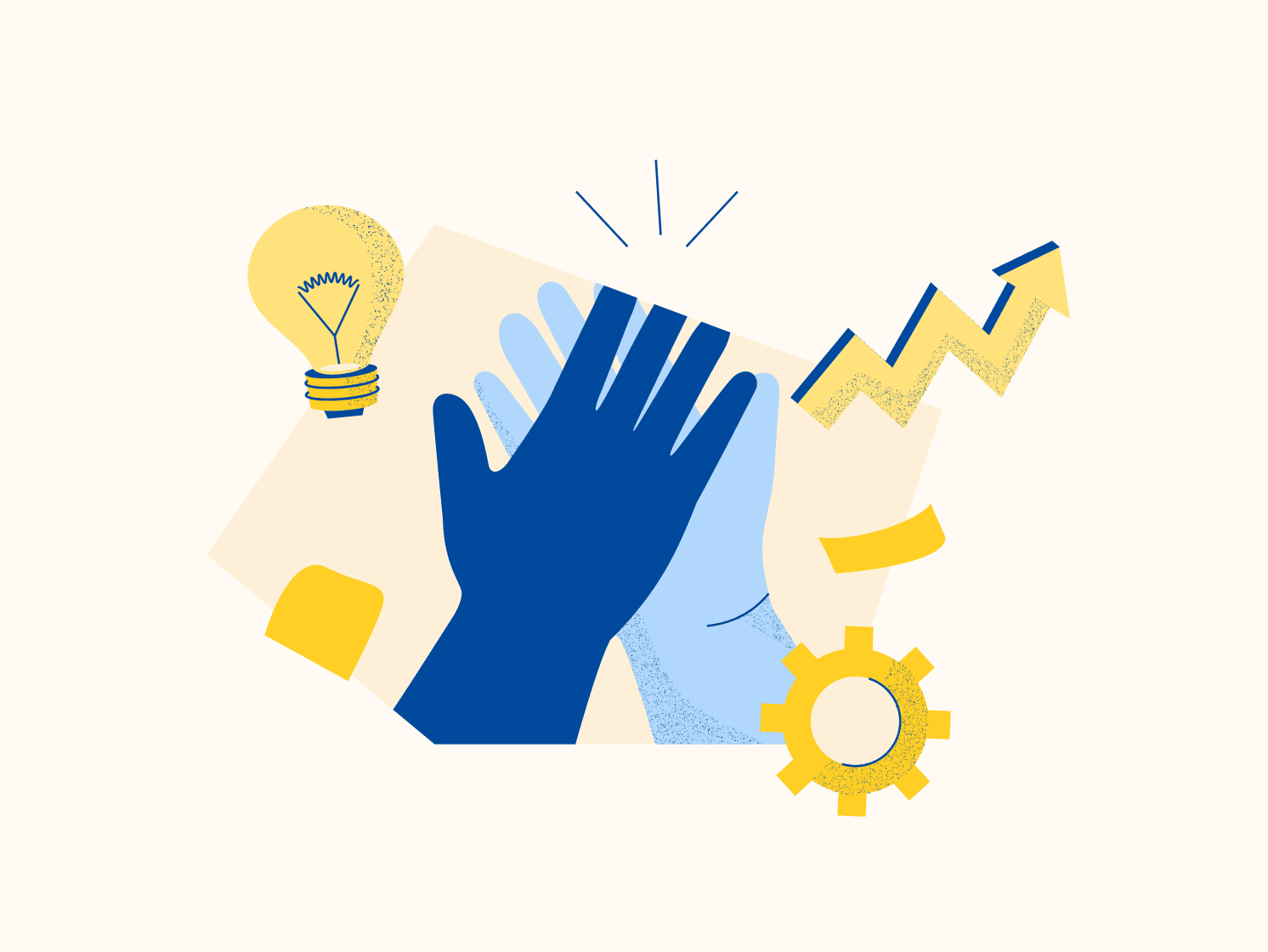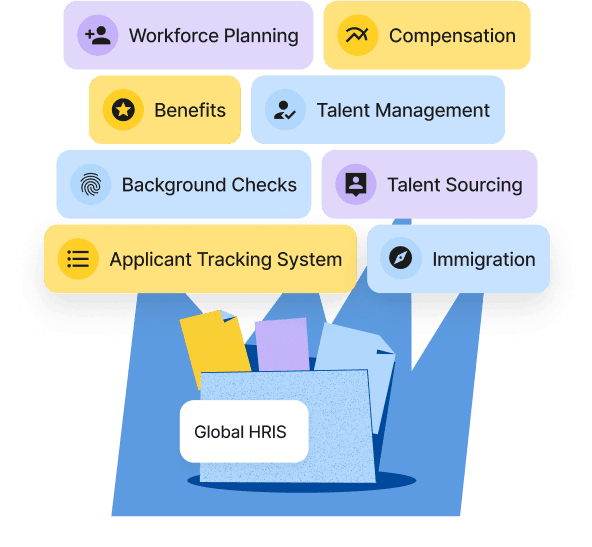Article
13 min read
Onboarding Is a Team Sport: How to Build a Process Everyone Owns
Global HR

Author
Alice Burks
Last Update
June 02, 2025

Table of Contents
Why a fragmented onboarding experience hurts your organization
Why onboarding can’t sit with HR alone
Mapping the experience and creating shared ownership across functions
The captain of the team: Empowering managers, not overloading them
Building clarity behind the scenes
Designing connections, not just compliance
Bringing it all together: The onboarding relay
Create impactful onboarding experiences with Deel
About the author
Alice Burks is the Director of People Success at Deel. She has a passion for transforming the workplace, and is dedicated to creating a new world of work where individuals have access to the best global opportunities and organizations can connect with top-tier talent.
At Deel, one of the biggest lessons we’ve learned from onboarding in hypergrowth, scaling from 0 to almost 7,000 team members in six years, is this: it doesn’t matter how good your workflows are if people don’t show up for them.
One of the most important mindset shifts we’ve made as a People team is that onboarding isn’t something we “own” in isolation. Yes, we build the infrastructure. But the real onboarding experience is a shared responsibility—a team sport. And the team isn’t just HR. It’s the hiring manager, the new hire’s peers, IT, leadership, and sometimes even legal or finance.
When those players are aligned, onboarding becomes something greater than the sum of its tasks. It becomes the first expression of what it means to work at your company.
Here’s how we’ve approached this shift at Deel—and how you can do the same, no matter your company size or budget.
Why a fragmented onboarding experience hurts your organization
When onboarding feels like a patchwork of disconnected tasks, new hires lose confidence before they even begin. If a laptop isn’t ready, if no one’s there to greet them, if payroll is delayed—it tells the hire, “You’re on your own.” Even worse, it signals that this isn’t a team that works together.
That’s not just a bad look—it’s a retention risk. A poor onboarding experience can set off a creeping feeling of doubt, second-guessing the decision to join, or questioning whether the company has its act together.
Why onboarding can’t sit with HR alone
In the early days at Deel, although onboarding content was solid from all inputting parties, each team worked in isolation from one another. What was lacking was a unified experience for new hires. Without a clear, unified voice behind the scenes, the new hire experience felt more transactional than welcoming.
That’s when it clicked for us: onboarding should feel like a unified experience the company delivers to the new hire, not a string of disconnected tasks from different departments. We started to think of onboarding as a team sport, where every touchpoint contributes to how someone feels in their first weeks. We want everyone to deliver a seamless message in one voice, the voice of “Deel.”
Team members involved: People, Hiring Managers, IT, Finance, Legal.
Mapping the experience and creating shared ownership across functions
To move from fragmentation to flow, we began by mapping every actor involved in the onboarding process—not just the People team, but:
- Talent Acquisition: To handle handoff and context, closing the loop from offer to start date
- Hiring managers: To guide performance and culture
- IT: To provision equipment and access
- Finance: To ensure timely and accurate payroll
- Legal: To handle country-specific compliance
- Team leads and peers: To support integration
Next, we clarified who owns what and where automation could reduce friction.
We use automated workflows on Deel to trigger tasks for the right people at the right time, e.g., based on someone’s start date. Some of these triggers include notifying IT to prepare a device, nudging managers with reminders, or kicking off learning assignments. These flows reduce the risk of dropped balls and let each team show up at the right moment with the right context.
A key takeaway for you: Even without a platform like Deel, any company can create this kind of clarity. Start with a shared RACI or even a basic checklist. What matters most is that ownership is visible, and people know their role in delivering a great experience.
The captain of the team: Empowering managers, not overloading them
If I had to pick the one most influential person in someone’s onboarding experience, it would be their manager. The manager is a critical engagement and retention touchpoint and also a critical support to any new team member coming into a new org. That’s why so much of our energy has gone into enabling—not overloading—managers to show up well for new hires.
At Deel, we’ve built toolkits, templates, and just-in-time nudges to support managers. Not because they don’t care but because they’re busy. Some of the most impactful things we’ve nudged managers to do:
- Send a personal “we’re so glad you’re joining” message before day one
- Block calendar time for the first-day welcome and end-of-week check-in
- Set up a team intro call that’s more social than functional
- Share a personal onboarding plan with key milestones and context
- Define the key moments for feedback on the onboarding timeline.
But the biggest unlock isn’t the content—it’s the shift in mindset. We help managers understand that their job isn’t to run onboarding like a checklist. It’s to help someone feel seen, equipped, and connected. We take the cognitive load off while still leaving space for personal touches.
For example, a manager might record a quick welcome Loom to send before a new hire starts. Or schedule a casual team coffee on Zoom for the first day. These small acts matter—and they’re what people remember.
A key takeaway for you: None of these actions require a big budget—but they do require intention. A short Loom, a Slack message, or a team coffee can leave a lasting impression.
Building clarity behind the scenes
Good onboarding feels seamless on the surface because there’s structure underneath. That’s why we invest heavily in behind-the-scenes visibility.
Using Deel, we track onboarding progress across stakeholders—what’s been triggered, what’s completed, and what’s stuck. These dashboards give our People team the signal we need to follow up before things go off track.
A key takeaway for you: Even in a scrappy setup, this kind of behind-the-scenes clarity is possible:
- Use one doc or tool to track onboarding ownership by function
- Share a timeline with key tasks and touchpoints
- Flag blockers clearly (e.g., device not provisioned, contract not signed).
Designing connections, not just compliance
One of the earliest things we learned from onboarding remote hires at scale is that connection doesn’t just happen—it has to be intentionally designed.
For example, for many organizations, orientation focuses almost exclusively on compliance. This was also true for Deel’s earlier days. However, being a remote organization, we realized that we could make better use of gathering new hires in a shared call.
So, we redesigned our orientation sessions to be more human and interactive rather than a compliance checkpoint. We ditched dense slides and created space for people to meet each other, share questions, and feel welcomed. We use facilitators from across the business, including our People team, to lead with authenticity and warmth. We don’t just walk through “how to work at Deel”—we show people what it feels like to work here. That emotional tone matters far more than most people think.
Team members involved: People, Hiring Managers, New Hires, Peers
Key takeaway for you: Automate the admin so your team can show up live for the moments that matter. No tool can replace human warmth, even over Zoom.
Bringing it all together: The onboarding relay
I know Deel’s setup might seem out of reach for some companies—especially smaller teams or those just getting started with remote hiring. But you don’t need a massive tech stack to make onboarding a shared responsibility.
Start with a simple mindset shift: onboarding isn’t a handoff between teams. It’s a relay. From the recruiter to the hiring manager, to IT and ops—each touchpoint shapes how welcome and supported someone feels.
If you’re just starting out, start small:
- Use one doc to define onboarding roles by team
- Give managers a simple first-week checklist
- Redesign orientation to create conversation, not just compliance.
When you do these things, you’ll find that onboarding isn’t just about getting people up to speed. It’s about setting the tone for how your company works together—and who it’s for. Because onboarding done right isn’t just a process. It’s a first impression of your culture in action.
Create impactful onboarding experiences with Deel
At Deel, we’ve built our own onboarding experience using the same tools we offer customers: automated workflows, assign learning programs and feedback surveys, create role clarity, and much more.
If your organization is ready to scale the onboarding process, contact a product specialist to see how Deel can help.
Deel HR
More resources
- How Long Should Onboarding Take? Best Practices and Ideal Timeline
- How to Make Onboarding More Engaging: 17 Fun Onboarding Ideas
- How to Use AI in Employee Onboarding: 7 Key Use Cases to Drive Success
- 11 Companies with the Best Onboarding Programs: Find Inspiration for Your Strategy
- How Google Onboards New Hires (And How You Can Easily Replicate It)

Alice Burks is the Director of People Success at Deel. She has a passion for transforming the workplace, and is dedicated to creating a new world of work where individuals have access to the best global opportunities and organizations can connect with top-tier talent. Prior to Deel, Alice was Global Head of Learning at DICE and Global Leadership Development Partner at Trustpilot.















